
The last chapter on the career of the MZ factory pilot
In order to compare the performance of drivers from the 1950s with those of today, one has to keep a few important parameters in mind. Let’s take Sandro Cortese’s rookie season in Motul WorldSBK 2019 as an example. The Man from Berkheim drove a total of 37 of the 39 originally planned races this season. Assen and Imola each had to cancel one run due to the adverse weather conditions. The best result from Cortese was a 6th place in the second race in Jerez. For this he would have received a World Championship point in Degner and Fügner’s time. All other results would not have been counted or registered at that time.
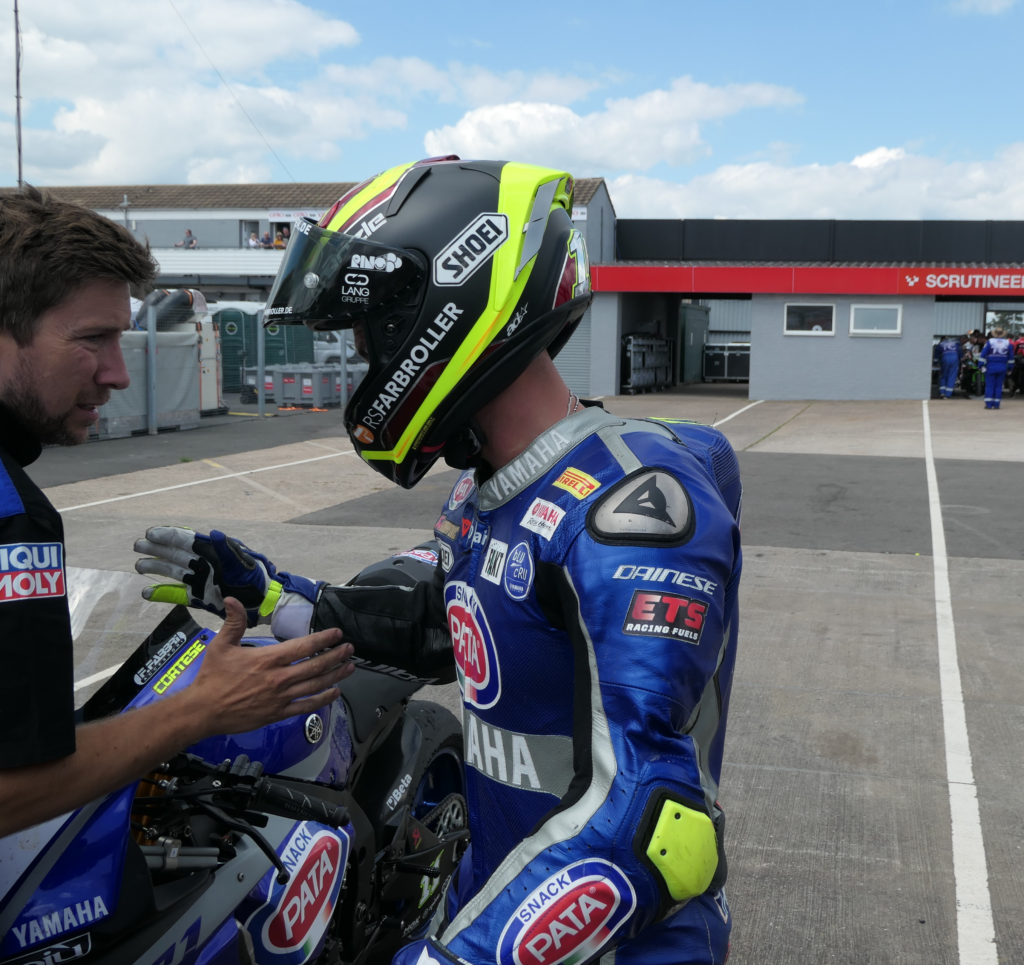
The comparison with Horst Fügner
In his multi-year career, Horst Fügner did not even drive half of the Grand Prix races, which Sandro completed in just one WSBK season. This for the simple reason that in the 1950s there were a maximum of 5 to 7 World Championship races per year. Due to the error-prone technology, Horst did not finish many races in his day, while technical failures are extremely rare today. Nevertheless, the man from Chemnitz finished 12 races of the motorcycle world championship in the top 6.

Much more difficult to make points
With only 3 exceptions, Fügner finished every race in which he crossed the finish line in the championship points. It was even more important that he was among the top 6 classified pilots. Almost all experts rate Sandro Cortese’s first WSBK season of 2019 as absolutely successful, and in some cases almost euphoric. What superlatives are necessary for Fügner’s and Degner’s achievements in comparison! Not to mention the modest means with which these were achieved and Fügner, like Degner, also worked as a mechanic.

Successful start to the 1959 season
The year 1959 began extremely successfully for Horst Fügner. Together with Ernst Degner, he spearheaded MZ racing in the third year. Despite the most modest means in the previous year, the small group from the GDR and their drivers had set an impressive performance with Fügner’s 250cc vice world championship title. Degner’s podium in 1958 in the 125cc class at the Nürburgring was more than impressive. At the beginning of the 1959 season, the victory on the Halle-Saale loop went to Degner and Fügner took third place. In the 250 race, both were eliminated with technical problems, after which the victory went to teammate Werner Musiol.



Good start in the west too
In the first foreign assignment on May 1st at the GP of Austria in Salzburg-Liefering, which was not yet part of the World Cup, Horst struck back by winning the 250cc class. As in the 125cc race, Ernst took third place, while Fügner again landed in front of him in the smaller category and took second place for MZ.



Technical improvements for the second full World Cup season
In the further development of the machines, despite the simplest means, new possibilities for increasing performance were constantly sought and found. In Zschopau, they worked feverishly over the winter on the thermal stability of the engines and other improvements. Among other things, MZ had switched from magnetic to battery ignition and the piston pin bearing was replaced by a needle bearing. This enabled the engine speed to be increased safely in order to tickle even more peak performance from the Re 125 and Re 250. With the introduction of a third flushing channel through the piston window, additional options were created. The 125cc engine had meanwhile achieved an output of around 22 hp at around 10,500 rpm for the season.

The relentless search for performance improvement and improvement
MZ chief engineer Walter Kaaden worked almost day and night to get the most out of the two-stroke engines. The first results in international races such as Salzburg showed that the competitiveness was given even at World Cup level. It is true that the Italian brands of Ducati and MV Agusta still had the edge and a little more power. But there was definitely enough for outsider chances in 1958 again at MZ.

World Cup season opener 1959
The world championship season began in mid-May only for the larger classes. At the French GP, the two smaller categories up to 125 cm³ and 250 cm³ were not yet announced. The circuit of the Circuit de Montagne d’Auvergne was new in the calendar and in the first two years of the event only the 350 cm³ and 500 cm³ categories and the teams were guests.
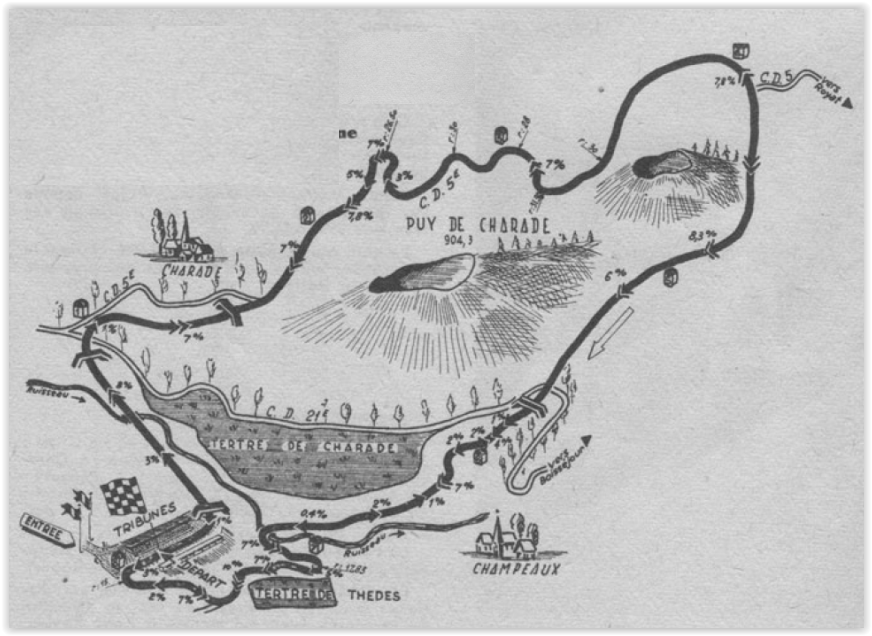
For MZ the season started with the TT
Therefore, the World Cup season began again for the troops from the GDR on the Isle of Man. While Degner did not reach the goal in the 125cc class at the TT, Fügner achieved the excellent 4th place. Only Tarquinio Provini, Luigi Taveri and Mike Hailwood had been faster than he. World champion Ubbiali had to be content with rank 5 behind Horst. As in the previous year, both MZ pilots missed out on the RE 250. The real sensation, however, was that the Swiss Luigi Taveri was on the road on an MZ with factory support and thus secured the Zschopauer manufacturer the first podium on the Isle of Man. Degner would have done this too, but he had to retire in third place on the last lap. A broken spring in the front brake was the reason for its failure this time.

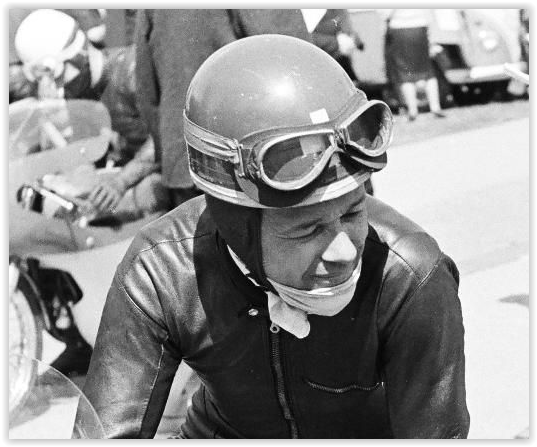
World Championship round 2 at the Hockenheimring
In the 250cc class at the German GP, the redemption came promptly after the weak start to the season. Just like in the two years before, things went well again with the “class enemy”. Behind Ubbiali (MV) and Mendogni (Morini), Fügner dashed across the finish line in third place. Another podium for Horst in West Germany, after finishing 2nd at the Nürburgring last year. Ernst Degner had to put up with a zero, for which he took a world championship point in the 125cc class with 5th place. Fügner was less lucky in this category and, like Taveri, was left empty-handed this time.

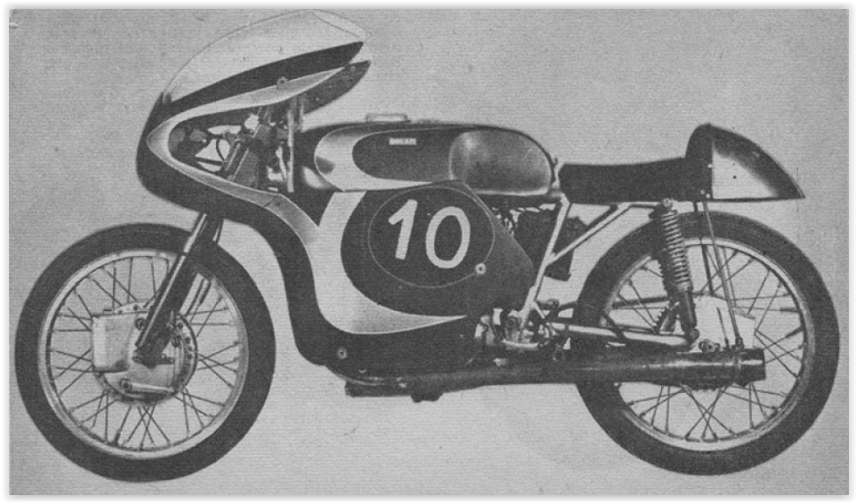
The third round of the World Championship with the Dutch TT in Assen
In Assen Degner dominated the first eight laps of the 125cc race. Unfortunately, a spark plug defect threw him out of the race afterwards. As at the German GP, Carlo Ubbiali (MV) won ahead of Bruno Spaggiari and Mike Hailwood (both Ducati). Fügner saved MZ’s honor with fourth place, ahead of Derek Minter and Ken Kavanagh (AUS, Ducati), who also competed on the GDR brand. With the RE 250, both teammates made it into the points this time. Horst Fügner crossed the finish line in 5th place ahead of Ernst Degner. In the 125cc class, Fügner was in a good fifth place in the World Cup intermediate ranking. At this point in time, nobody could have guessed that Horst had driven the last race of his life in the Netherlands.



The fatal training accident in Belgium
The 250cc class was not advertised in Spa-Francorchamps like at the season opener in France. Therefore, the group from the GDR inevitably concentrated entirely in the 125cc class. The fast route in the Ardennes was not easy for the MZ Re 125 due to its performance deficit compared to the competition from Ducati and MV. Therefore, everyone involved in the Zschopau team was aware that they had to work hard to survive against the two-cylinder bikes from Italy. Perhaps for this reason both drivers exaggerated during training, in any case, both Fügner and Degner fell. Although some media had reported after the race that the two had not suffered any serious injuries, but it was the end of Horst’s racing career.


He at least survived the dangerous years and routes
During his 9-year active career alone, well over 100 motorcycle racers sacrificed their lives to this beloved sport. Of course, Horst continued to work for MZ, and later he proudly told a story that reveals a lot about his humorous way of coping with the not always easy life as a citizen of the GDR. The French MZ importer Monsieur Pierre Bonnet had been promised a Re 250 for his driver Jacques Roca at the beginning of the 1970s. For three races in France and a limited period of time, Fügner was commissioned to transport the racing machine and take care of the operation on site. So he finally saw the Circuit de Montagne d’Auvergne near Clermont-Ferrand after all, after the smaller classes had not yet been advertised there in 1959. He was also present at the races in Bourg-en-Bresse (west of Geneva) and Monthléry (30 km south of Paris).

A trickery – even at 50 years old
Horst already suspected that this would be his last assignment abroad. Therefore he stayed a few days longer in France of his own accord and made another excursion to Paris. There he is even said to have waved to the Queen of England passing by at a parade when he was out in town. According to his statement, the Queen even waved him back at the time. On the way back, Fügner made a stopover in Strasbourg for a private sightseeing tour. Even at the age of 50 he was still a real rogue and used the short freedom outside the Iron Curtain again in his own way.

Not willing to escape from the GDR
A so-called escape from the republic was never planned by him, only the period of residence lasted some time longer than specified. Of course there was a lot of trouble after his return to Zschopau. One had probably already feared that he, like Degner, had seized the opportunity to flee West a good ten years earlier. At the MZ plant, this adventure was of course not very beneficial for his further career. From then on, he was deported to the spare parts store, where he was often a valuable point of contact for private drivers with advice.
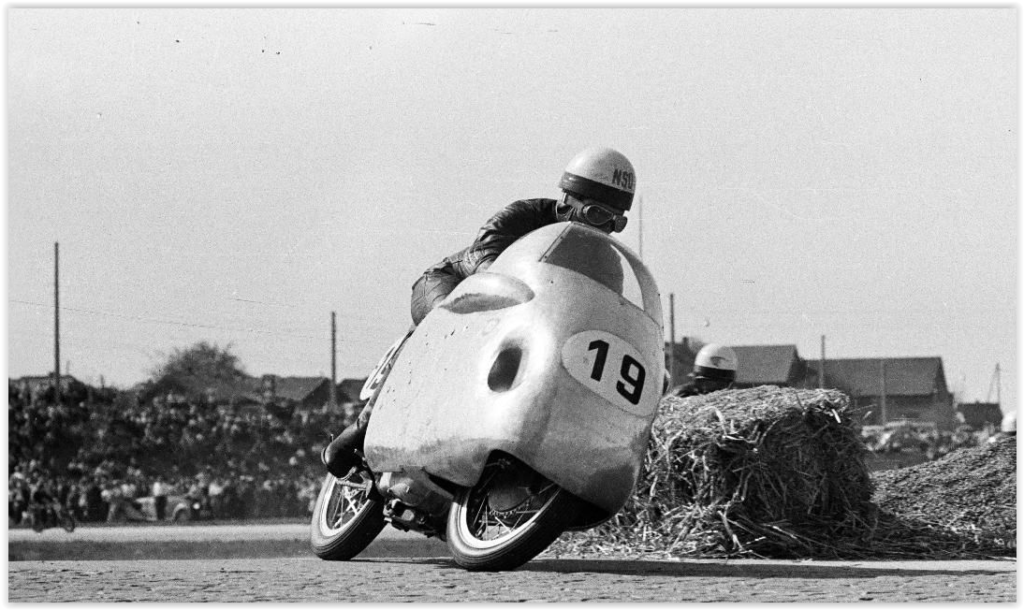
Retirement and retirement life
Horst Fügner retired in 1988 at the age of 65. He maintained a few contacts from his time at MZ. Due to the atmosphere in the GDR, which was characterized by a lot of mistrust of supposed friends, he had the necessary skepticism to distance himself from questionable contemporaries early enough. Stasi employees were omnipresent in the workers ‘and peasants’ state. One of the few drivers with whom he had a real friendship throughout his life was Thomas Heuschkel, who died in 2009. In his retirement, Horst remained a role model in terms of fitness, which distinguished him well into old age. Except for the Sachsenring, the man from Chemnitz was rarely seen at two-wheeler events and the veteran scene was not very attractive to him either. On November 22nd, 2014, one of the best racing drivers in the GDR died at the age of 91 in Chemnitz. Horst Fügner had survived almost all of his former racing driver colleagues.


125cc rider world championship 1959

250cc rider world championship 1959
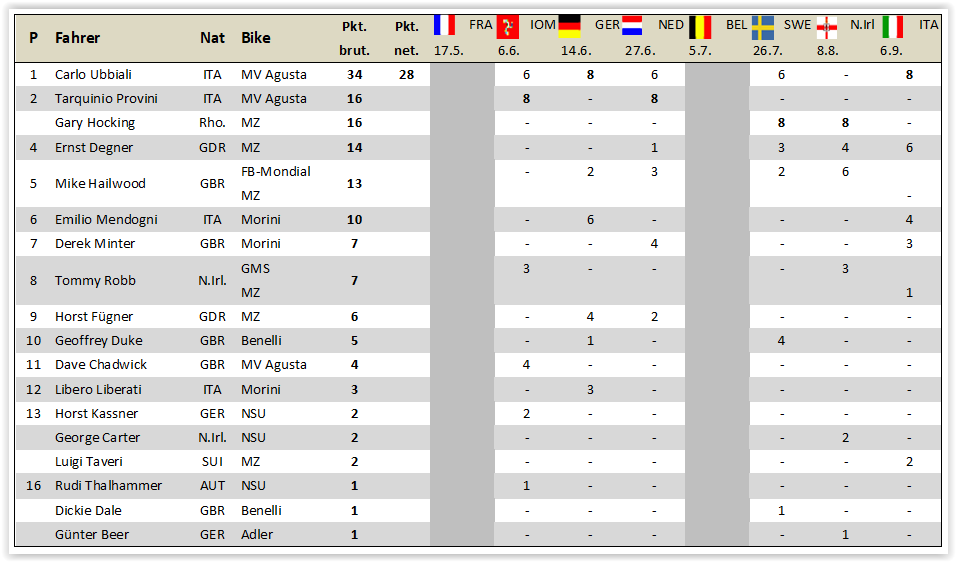
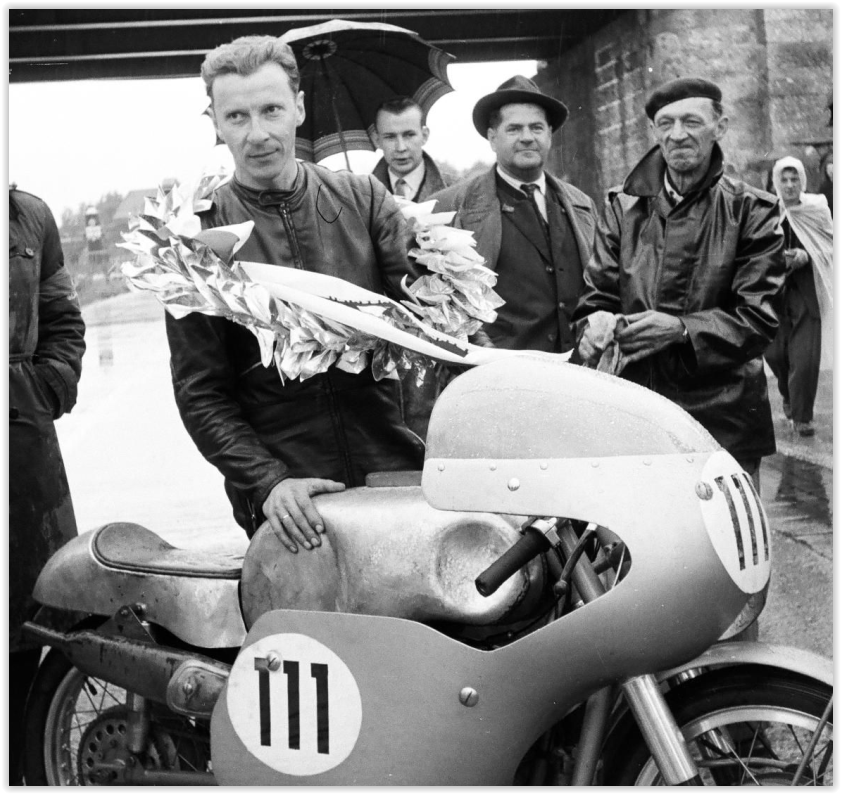
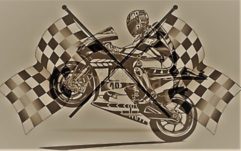
No Comments Yet